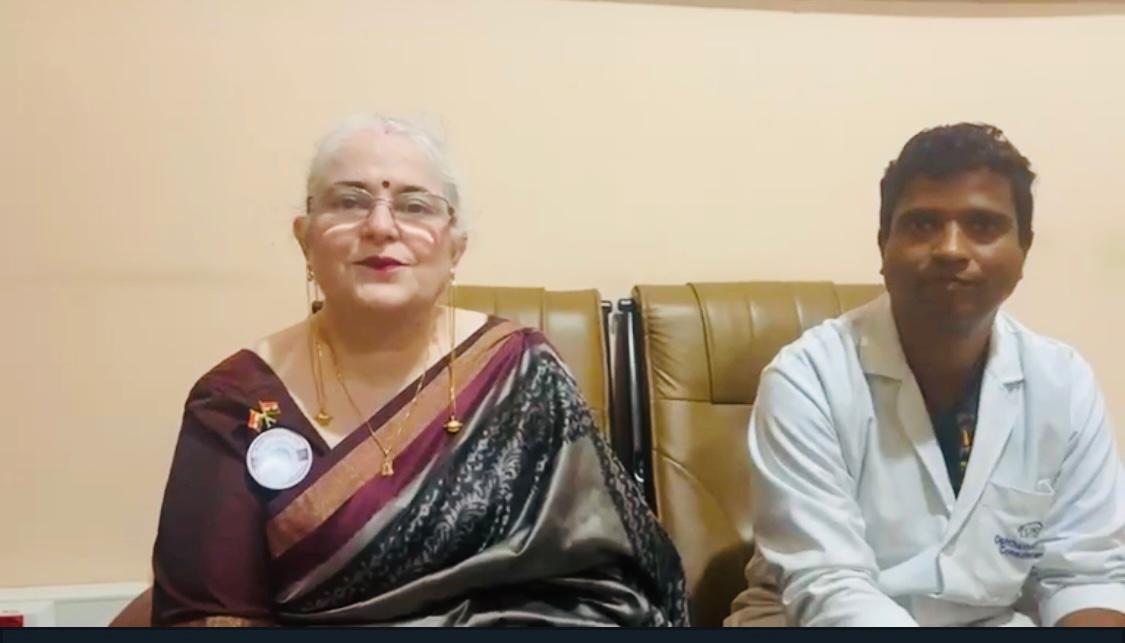Liberia: JFK Performs ‘Groundbreaking’ Eye Surgeries

JFK Memorial Hospital
…. “This is the first time we have been able to perform this particular surgery which is a significant milestone for eye care in the country,” says Dr. Niranjan K. Pehere.
A ‘groundbreaking’ medical breakthrough has been achieved by the John F. Kennedy Medical Center.
The nation’s premier referral hospital, which has for years struggled to meet the surgical needs of people suffering from retina problems, just performed its first-ever retina surgeries.
This could be considered a significant milestone for ophthalmology care in Liberia.
About 15 people who had been suffering from retinal diseases, but had been unable to seek advanced surgery outside of the country, were cured as a result of the milestone surgeries–restoring their practically lost vision in some cases and working to prevent further vision loss in other cases.
Retinal diseases, which are among the leading causes of blindness worldwide, require a complex surgical procedure that involves the repair of an injured or damaged retina — the thin layer of tissue at the back of the eye — that senses light.
The surgery requires highly skilled surgeons, sophisticated equipment, and a sterile operating environment. This type of surgery is typically only available in developed countries and comes at a high cost, making it inaccessible to many people in developing nations.
“This is the first time we have been able to perform this particular surgery which is a significant milestone for eye care in the country,” Dr. Niranjan K. Pehere, an ophthalmologist at the Liberia Eye Center at the country hospital says.
“No more will people have to spend thousands of dollars abroad just to seek surgical procedures when faced with retina problems,” Pehere added.
Pehere added that the success of the surgery is a testament to doctors at the Liberi Eye Center's commitment to providing high-quality eye care services to all people no matter their financial background.
“We have been working tirelessly to improve medical services and provide innovative treatments for eye diseases,” Pehere noted. The surgery is proof that we are making progress towards achieving our goals.”
The groundbreaking surgery was performed by a team led by Dr. Subhadra Jalali, a visiting Ophthalmologist who works with L V Prasad Eye Institute in India. The team worked for hours to ensure the success of the surgeries which was made possible by the state-of-the-art equipment at the JFK Eye Center, run by L.V. Prasad Eye Institute of India.
The center receives about 15,000 patients annually. Of those patients, 3000 to 4,000 are cases of glaucoma with most in advanced stages. Retina disease problems are, however, small in numbers. But for years, surgical procedures were lacking until Jalali's recent surgeries, which were performed in collaboration with local doctors.
Jalali who is a renowned surgeon says that the L.V. Prasad Eye Institute would continue to support the eye center at JFK as the introduction of retina surgery is here to stay.
“Eye care is very important and we will do all we can to ensure that the service is maintained. The equipment and the technicians needed to operate it are here.
“This procedure has opened up new possibilities for eye care in Liberia,” she says. “It shows that with the right equipment, training, and support, the center can provide more advanced eye care services to people who need them most.”
The JFK Eye Center is the leading provider of eye care services in the country and only offers advanced surgery procedures.
It is equipped with state-of-the-art equipment and technology, and it has a team of highly trained and experienced surgeons who are improving the lives of countless people who suffer from visual impairments -- and other eye-related conditions.
While eye care is expensive, the Liberia Eye Center takes care of every one of its patients as part of its philosophy that everyone “who requires treatment should receive it, irrespective of their ability to pay for it and the complexity of the disease.”
They achieve this through a three-tier payment system, which is intended to determine patients’ ability to pay for an eye care service so that no one is turned away “due to their financial circumstances.”
The impact of the three-tier payment system has therefore been profound.
Patients who were once struggling with vision loss and the fear of blindness have been able to manage their disease and maintain independence even if they are unable to pay for the treatment.
Meanwhile, Pehere has announced that the hospital would be receiving one retinal surgeon every one or two months to keep providing such service.
“We are pleased to be able to offer this surgery to more patients in the future," he says. "It is a great step forward for eye care in Liberia, and we are proud to be at the forefront of this important work.”“We have one retina surgery coming from India at the end of the month. And they will be coming regularly. We are planning to train three nurses as a backup so once the service grows we will have people taking care of them,” Pehere noted. “We have already trained four doctors, and two are working with us.”

